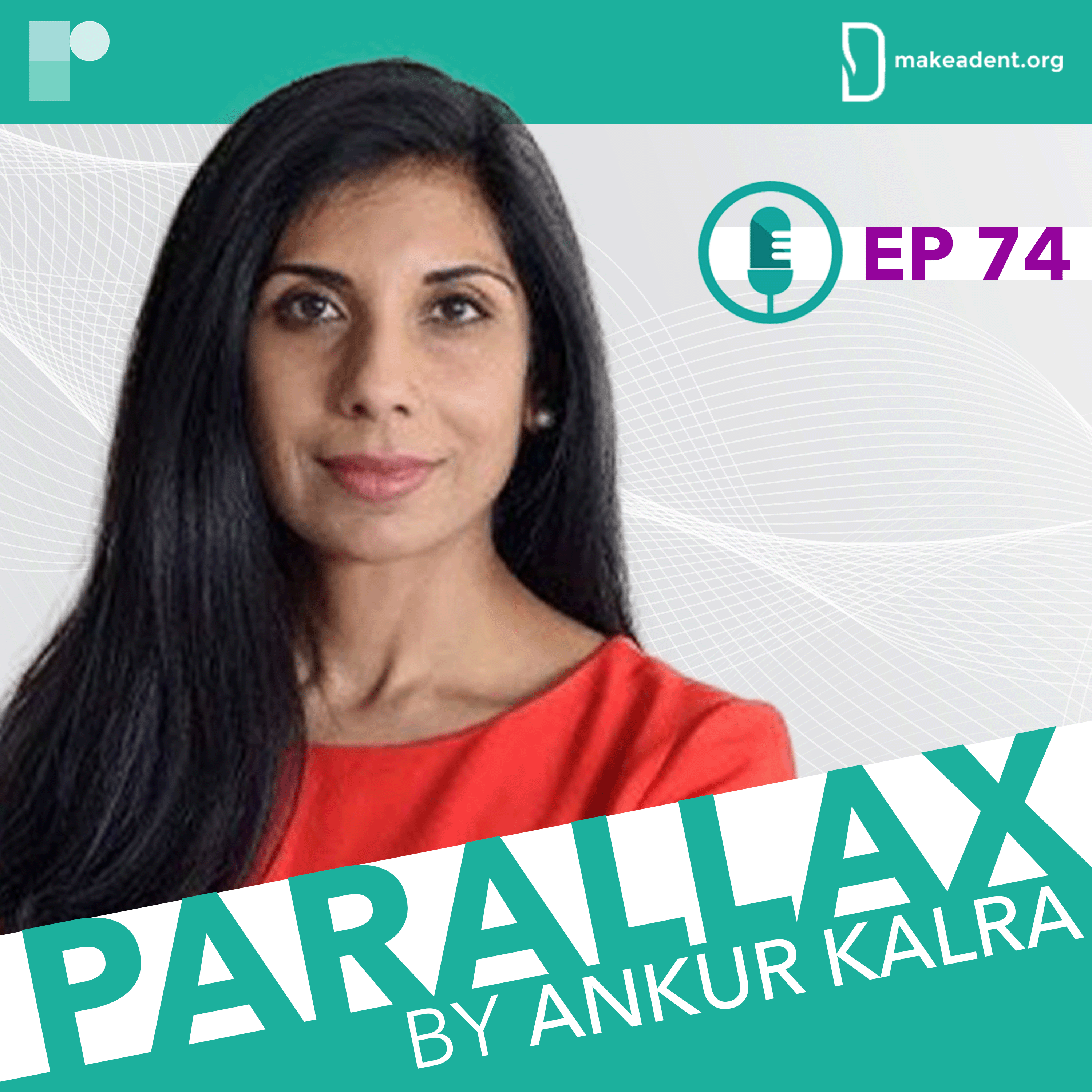
“Seek refuge in the attitude of detachment and you will amass the wealth of spiritual awareness. The one who is motivated only by the desire for the fruits of their action, and anxious about the results, is miserable indeed.”
Bhagavad Gita
In medical school, Dr Chinnaiyan was fascinated with embryology. The question that used to hunt her was how does once cell know to differentiate into so many different organs: what is that knowledge?
In this week’s Parallax, Dr Ankur Kalra welcomes back Dr Kavitha Chinnaiyan cardiologist, Professor of Medicine at Oakland University William Beaumont School of Medicine and accomplished author.
This nurturing episode focuses on questions that touch on what it is that we seek as human beings and how can we cultivate awareness and authenticity while practicing modern medicine. Ankur asks Kavitha about what it means to be spiritual as a cardiologist. Kavitha talks about the experiences made possible by mindfulness. They discuss the difference between conditioning and growth. Kavitha talks about burn out and how we could make changes by embracing medicine not only as a measurable science but as an art.
What is happiness? How can we become more authentic by letting go of judgements? What can we achieve by looking at medicine not only as a science, but as an art?
Questions and comments can be sent to “podcast@radciffe-group.com” and may be answered by Ankur in the next episode. Guest, @ChinnaiyanMD hosted by @AnkurKalraMD. Produced by @RadcliffeCARDIO.
You can find Drs Ankur Kalra, Erin Michos and Kavitha Chinnaiyan’s article on COVID-19 and the healthcare workers here.
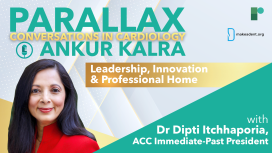
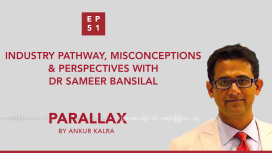
Dr. Bansilal was an Assistant Professor of Medicine at the Icahn School of Medicine at Mount Sinai when he decided to seek an alternative pathway to make an impact on patients’ lives.
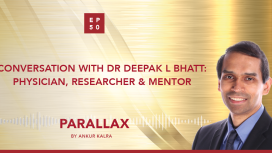
In the 50th episode of Parallax, Dr. Ankur Kalra’s guest is Dr. Deepak L. Bhatt leading physician, researcher, lecturer, and educator who has authored or co-authored over 1650 publications and was recipient of the ACC’s Distinguished Mentor Award in 2018 and AHA’s Distinguished Scientist Award in 2019.
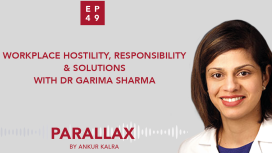
The American College of Cardiology surveyed cardiologists across the globe to have a more detailed understanding on the impact of hostility, discrimination, and harassment in the workplace. Of almost 6000 cardiologists who took part in the survey 44% reported hostile work environment.
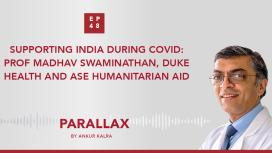
In this week's latest podcast episode, host, Ankur Kalra, MD, meets guest Prof Madhav Swaminathan (Duke University Health System, NC, US) to discuss how he has orchestrated a major humanitarian effort, in association with Duke University Health and The American Society of Echocardiography, to supply ventilation equipment and PPE to hospitals and NGOs during the current COVID-19 crisis in New Delhi, India.
Hear them discuss the challenges and learnings associated with the supply chain, inventory, logistics and cost to deliver this humanitarian effort; which most recently resulted in $140,000 of life-changing equipment being delivered to four key hospitals in New Delhi. A most inspirational episode.
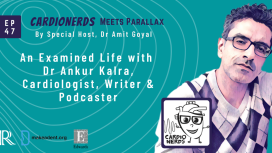
In this candid and spiritual conversation Amit and Ankur take a journey through former episodes of Parallax and Ankur’s writings to explore what it takes to strive for a deeper knowledge of ourselves; or, as Ankur puts it, dharma, the inherent order of reality.

Parallax’s guest this week is Dr Eric David Adler, Medical director of heart transplant and mechanical circulatory support at UC San Diego Health.

How did Dr Gragossian receive her diagnosis? How does she feel about her new reality? What drives her? What is her message to our listeners?

Just after 9/11, Heval, the 18-year-old Syrian Kurdish refugee found a job as a dishwasher. At this point, he was the sole provider of his family. The pressure that comes from being poor did not leave him for many years. Today, he is firm believer in giving back to underserved communities by spreading awareness within the medical community. As he says, well-meaning people of privilege are sometimes afraid to act. What we need is more people to bridge the gap and find ways to help each other.

What drives Dr Nishtha Sodhi? What were the formative moments of Dr Sodhi’s career? What are the new frontiers of cardiology?







